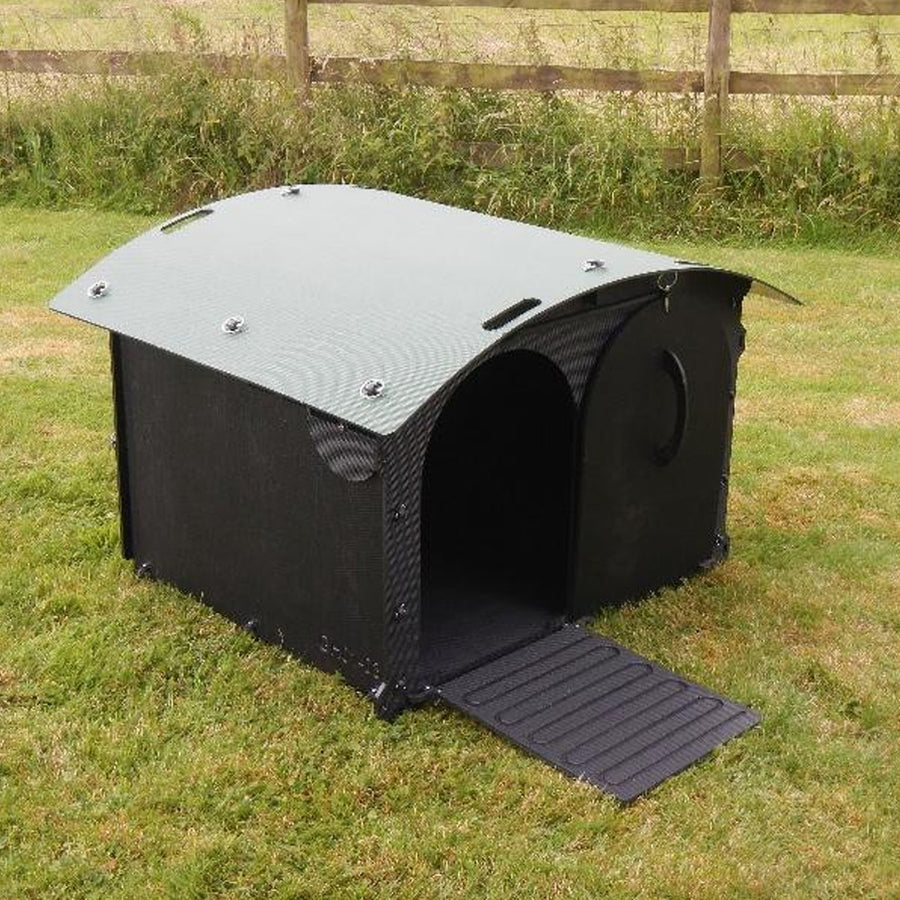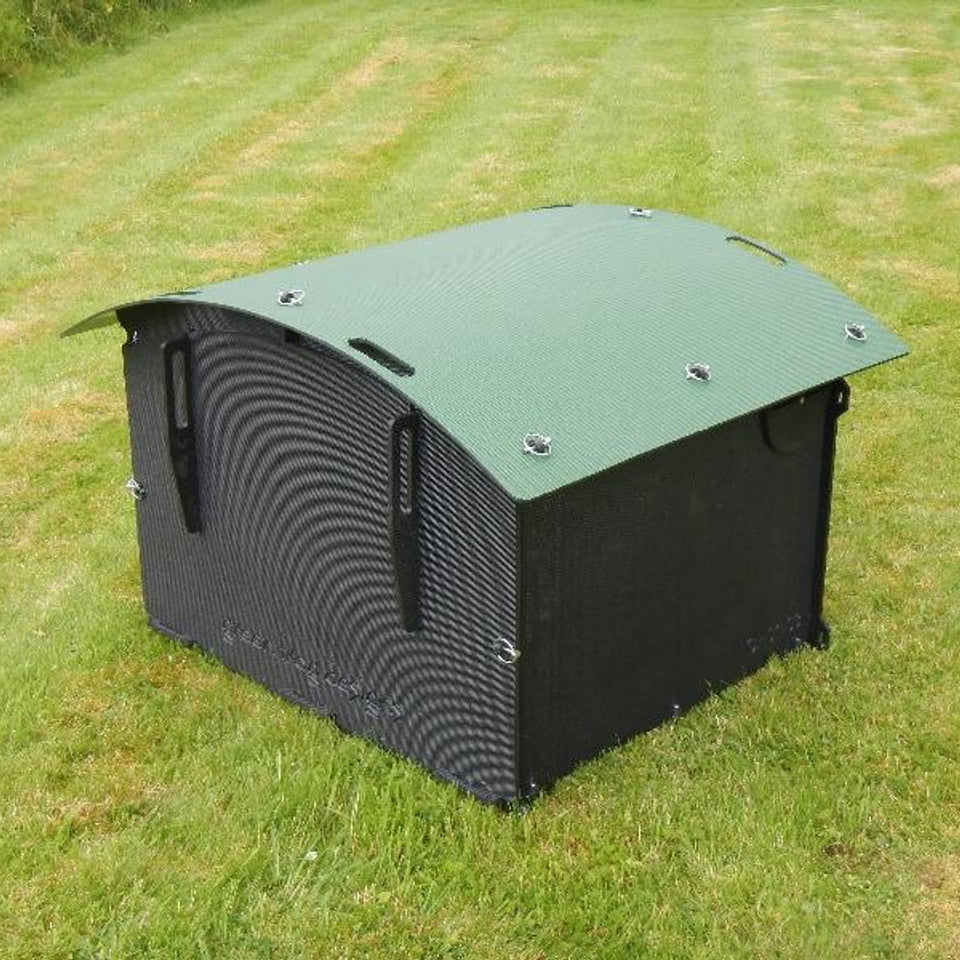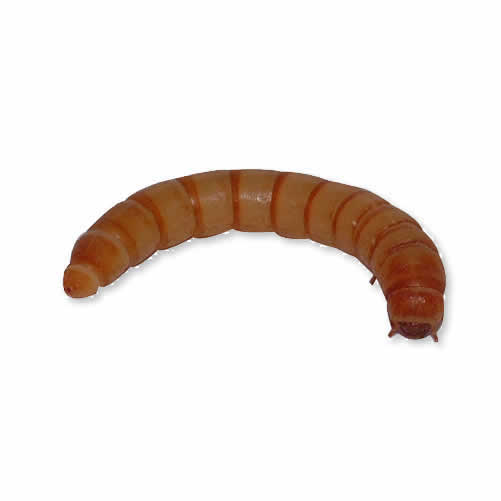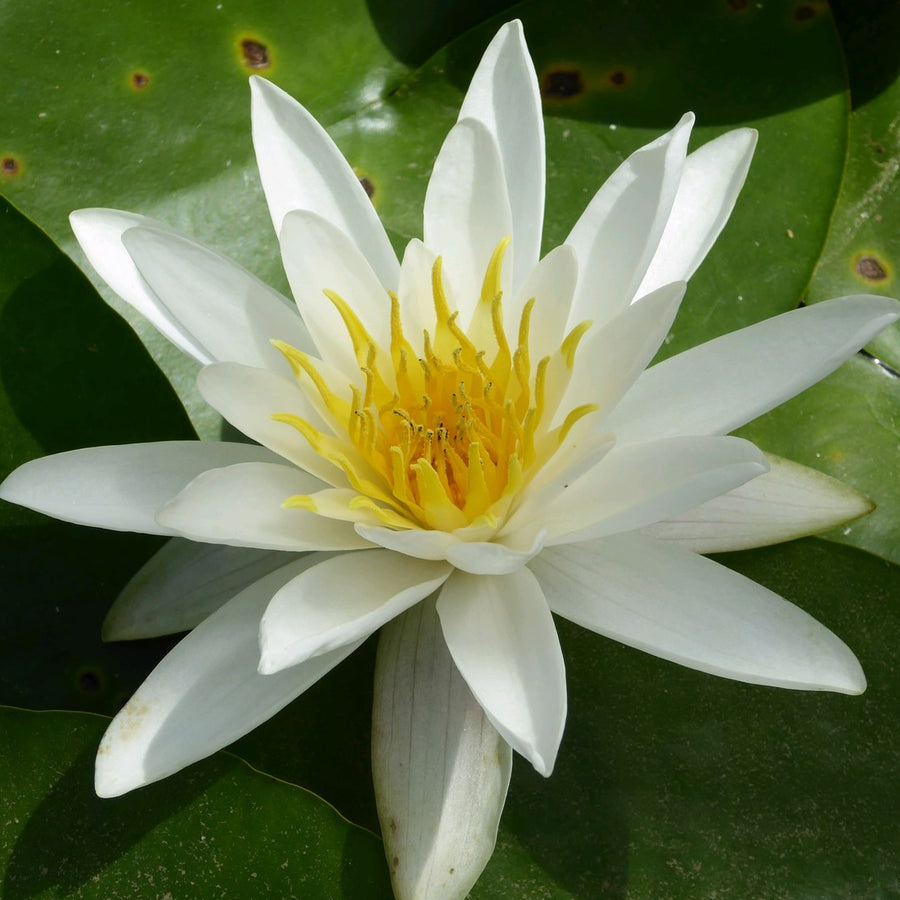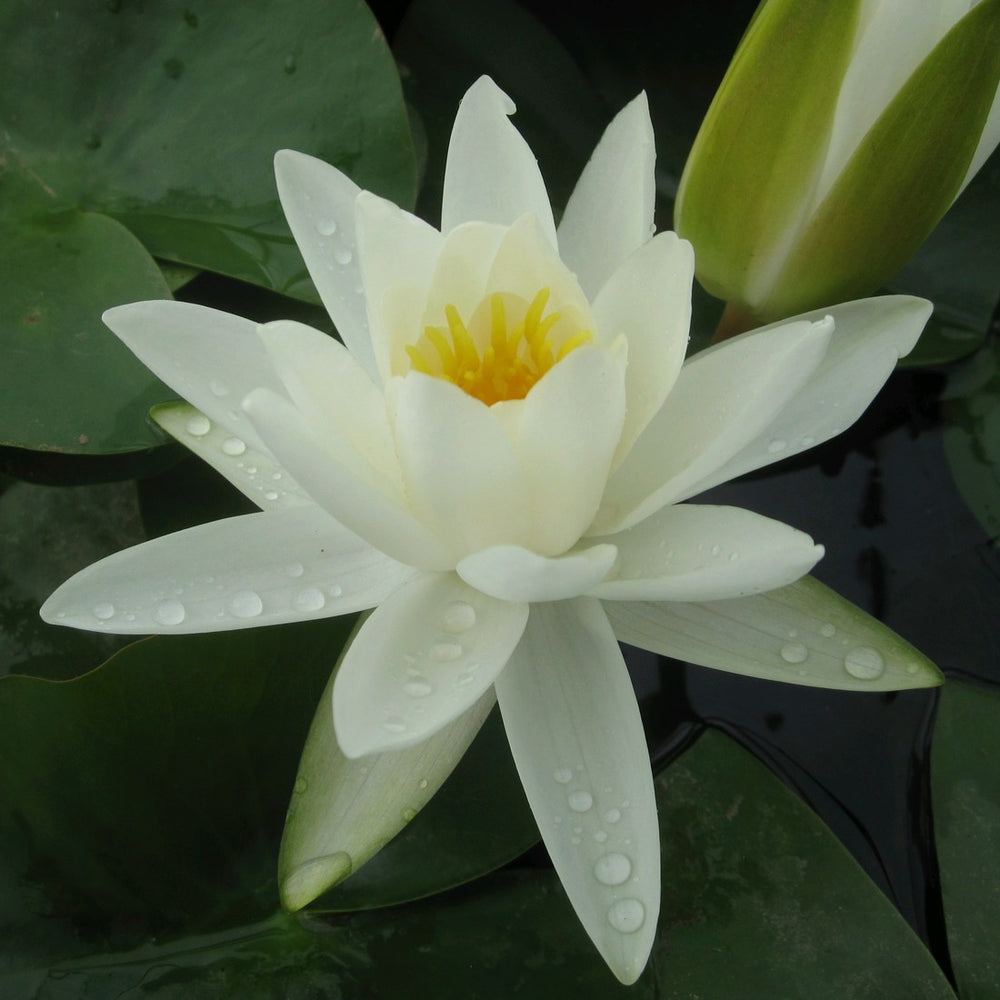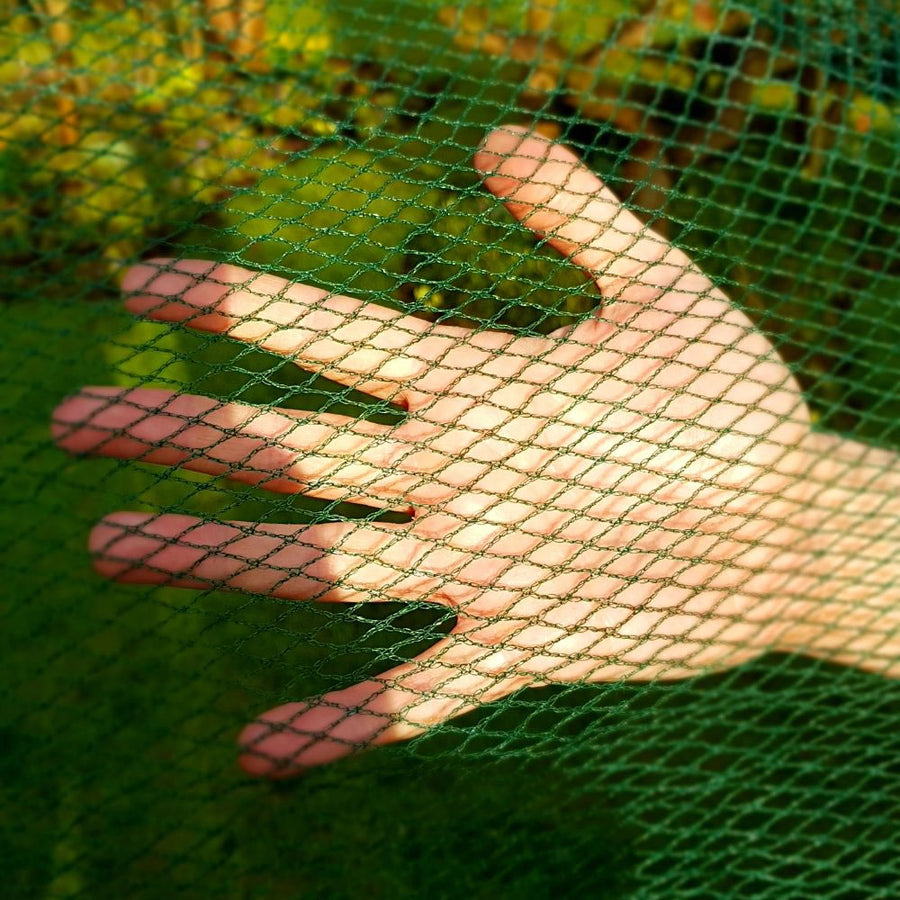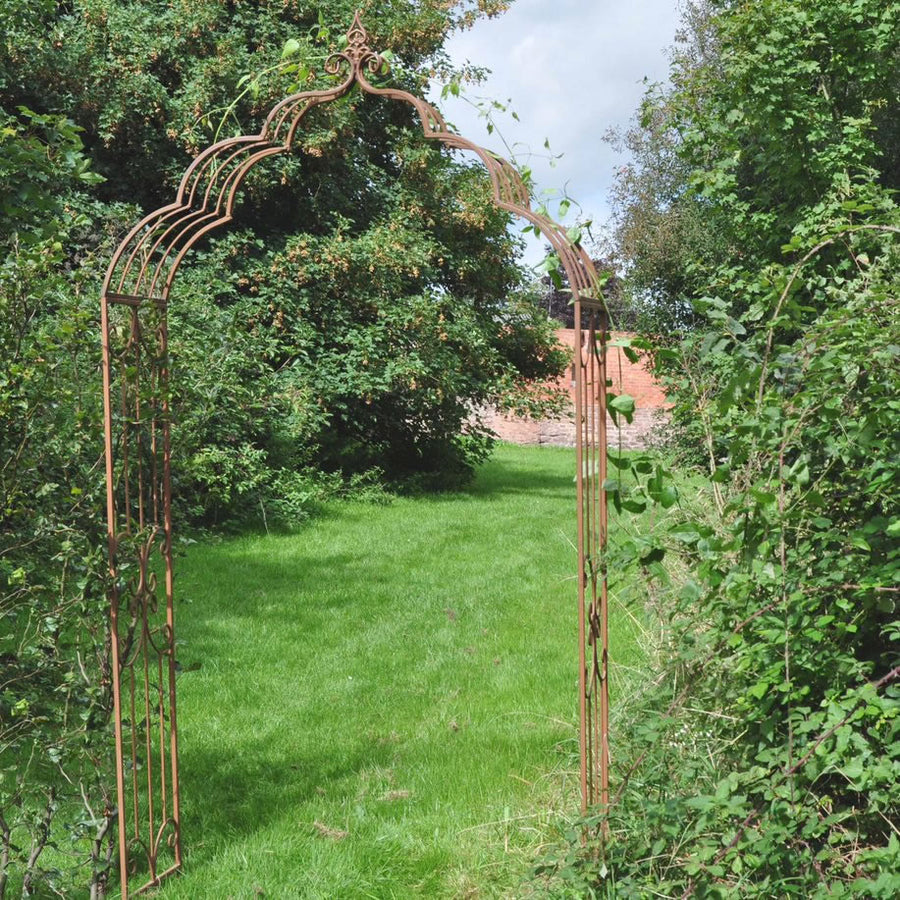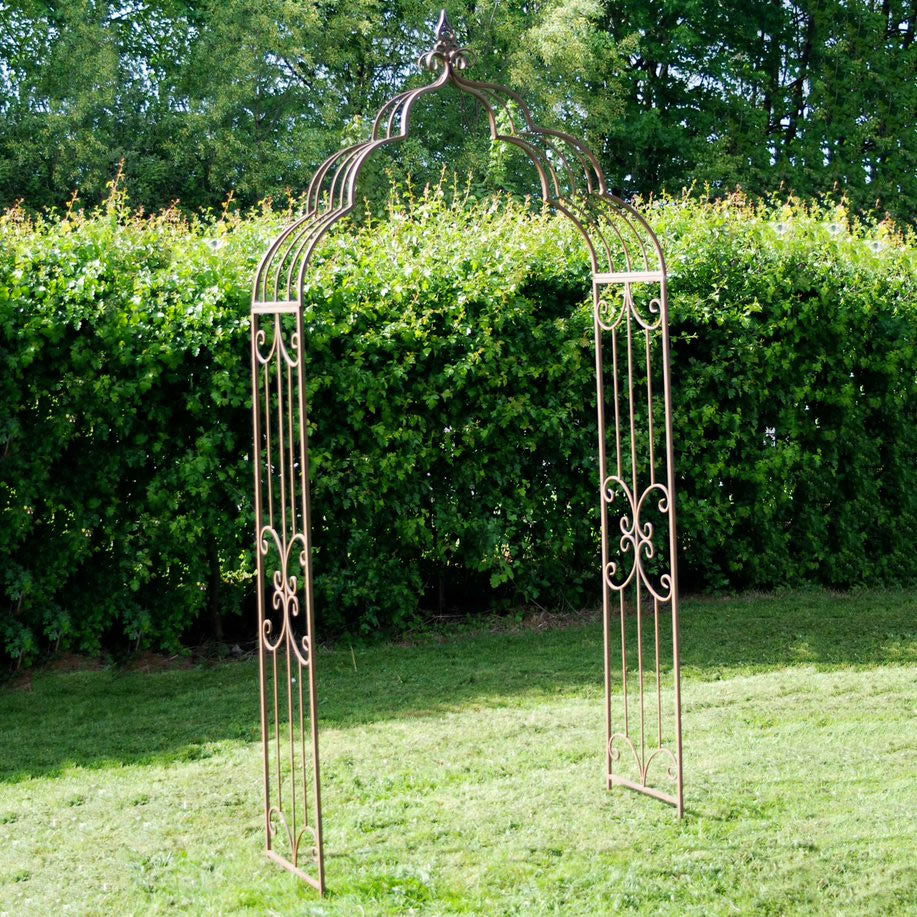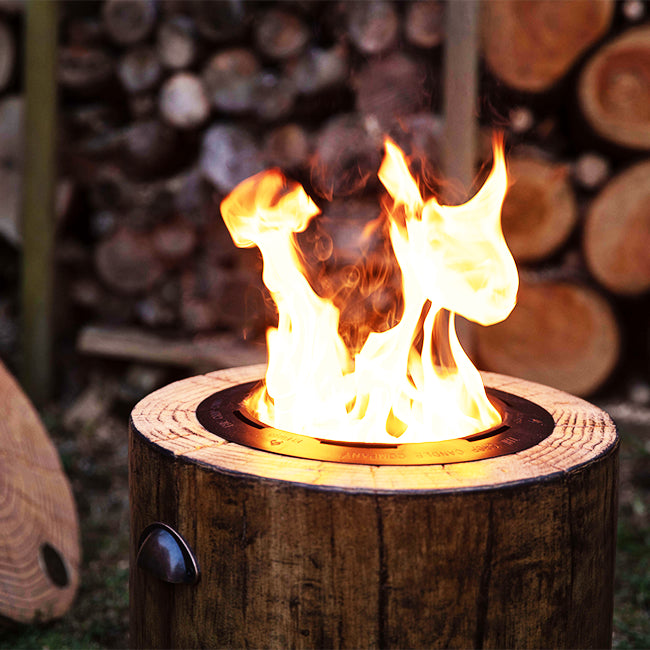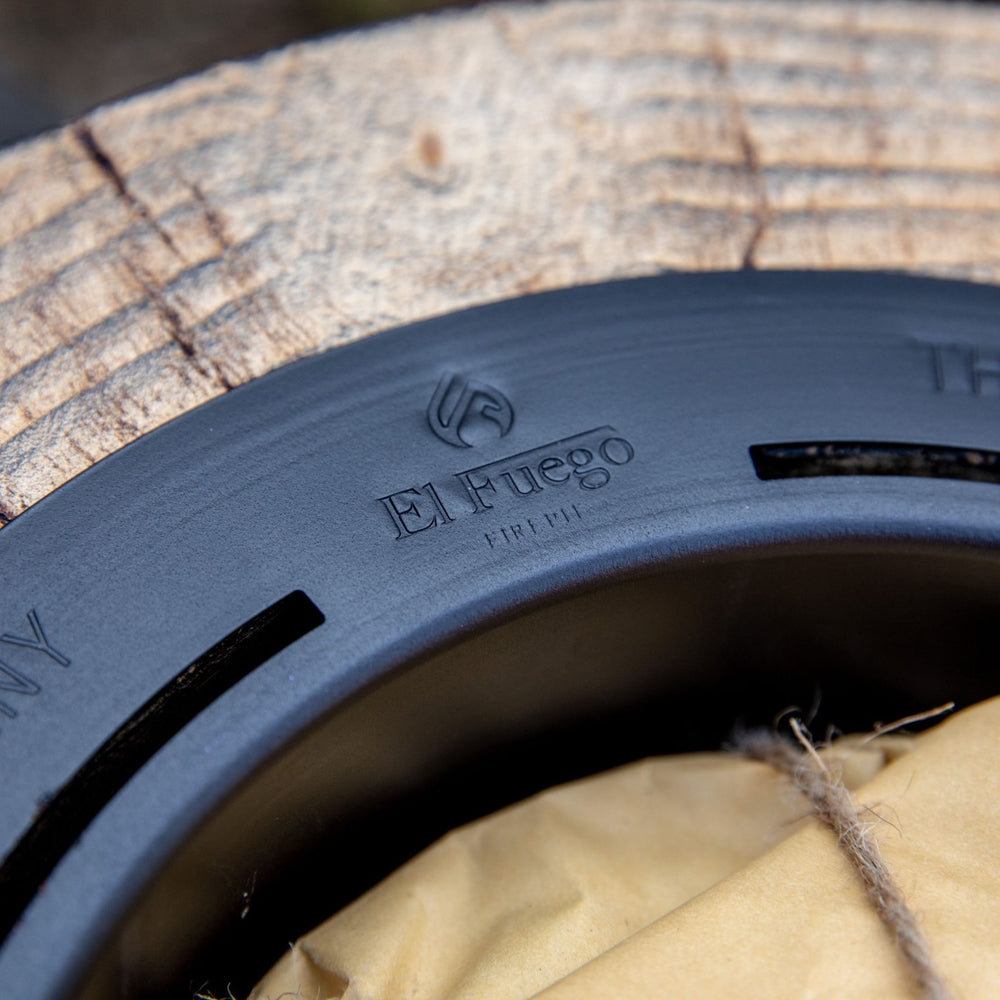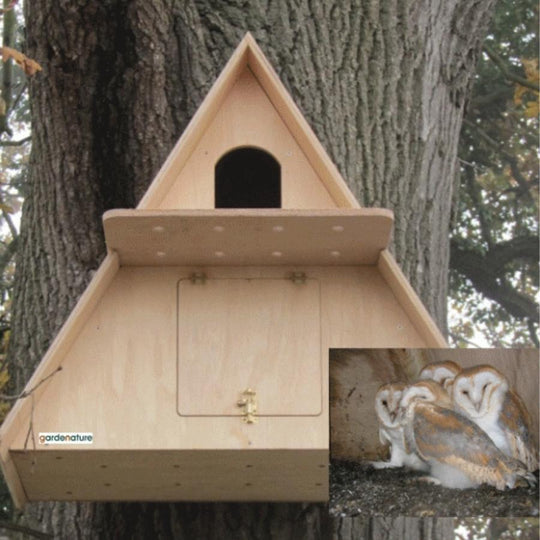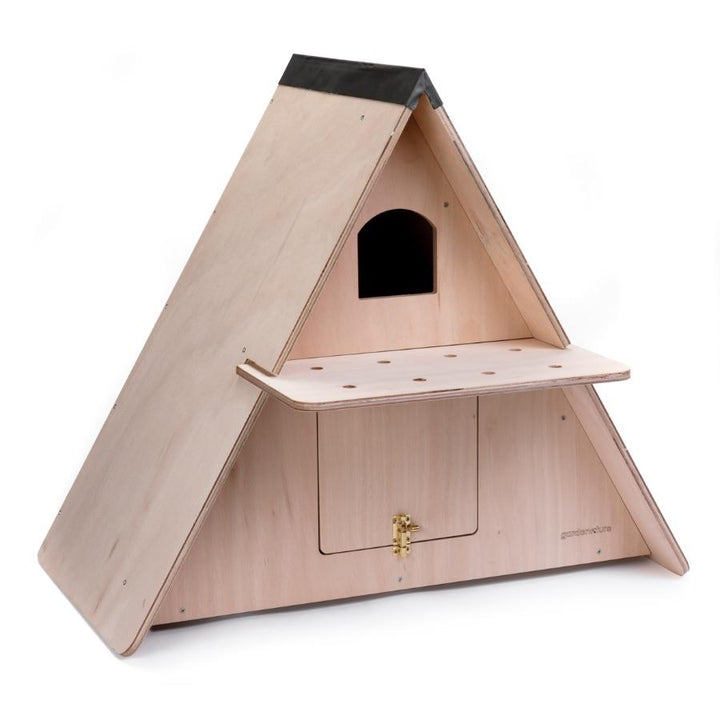Gardenature Barn Owl Nest Box
About 2,000 pairs of Barn Owls currently breed in this particular type of owl box, with an estimated 100,000 owlets having fledged during the last 20 years. This has contributed significantly to the conservation successes now being seen with Barn Owls in the UK.
Made to BOCN Barn Owl Conservation Network specification
Constructed from exterior grade bonded plywood which has been treated with two coats of water based preservative, stainless steel screws, brass inspection door bolts and hinges this owl box is designed to last with minimal maintenance.
Whilst being strong and durable, this handmade barn owl box is specifically designed so that it can be installed about 12 feet from the ground onto the face of a tree trunk, wall or existing pole by one or two persons, without the need of any haul ropes or other lifting equipment. The large inspection door is specially designed to aid cleaning and also permits the safe and secure monitoring of breeding barn owls by licensed conservationists. Once in position the floor of the owl nest box should be lined with about 2" (5cm) of small wood chippings or similar.
In the UK, owl boxes now account for three-quarters of the nest sites used by Barn Owls with ‘A’ Frame type owl nesting boxes being used by over 1,500 pairs, one of which produced nine young in 2002, the highest fledging success recorded in the UK.
Barn owls require rough grassland with good populations of rodents especially voles. Field edges, the edges of watercourses and grass strips alongside woods provide ideal hunting habitat.
Once a Barn Owl has chosen its first nest site it is likely to use it again year after year, generation after generation. Clutch size and breeding success depends on the availability of main prey species, so there may be considerable year-to-year variation in breeding performance. Four to seven white eggs are laid at intervals of two to three days. Incubation lasts 30-31 days but the female begins with the first egg. Thus, young hatch at two to three-day intervals and are at different stages: the youngest may die if food is short. The young birds fly at 50-55 days. Two broods may be reared. About 75% of young die in the first year: survivors normally live for another one to three years. The greatest known age in Europe is over 21 years; there are several records of 12-17 years.
Dimensions
- H 700mm x W 790mm at base
- Weight 16.4 kg
Please allow 2 weeks for delivery of this product.
Garden Wildlife makes every effort to ensure that the goods you ordered get to you undamaged and in a timely fashion.
Please check the estimated delivery period for individual products on their respective website page and please feel free to contact us with any questions before ordering.
Delivery to Scotland and Off-shore locations may not be possible, could take longer, or could cost more. If there are any issues regarding the delivery address our team will email you as soon as possible.
We will always send you as much tracking information as possible regarding your order. Our team is also available to contact at sales@gardenwildlife.com should you need us.


